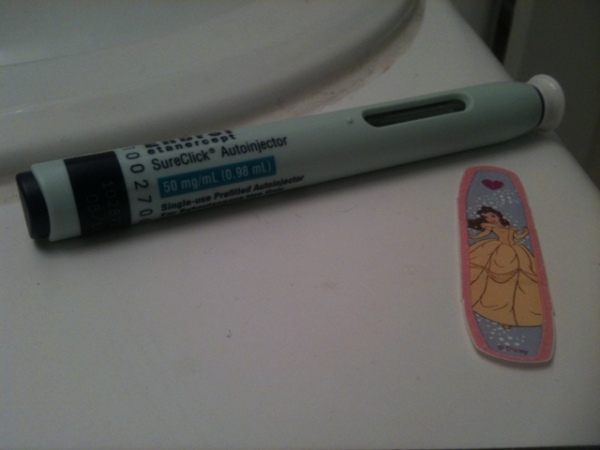Ah, yes, the staple of blogs, newspapers and radio shows everywhere: the year in review post/article/show.
2011 was a pretty good year for me, overall, so it’s good to look back at where I was then before considering how I want to make 2012 even better.
january.
I had just restarted Enbrel and was starting to feel better after the horrible slow decline of 2010. I got a promotion at my job (wahoo!), and my new reporter started. I was feeling pretty optimistic that things would be awesome.
february.
I fought the winter blahs and got an IUD. I got mad at people’s assumptions. I fell back in love with journalism, despite its potentially negative impacts on my health.
march.
I went ice skating—and learned to accept my limitations.
april.
I started the Health Activist Writers Month Challenge. I participated in the Walk to Cure Psoriasis. I was named a top 40 arthritis blog!
may.
I was incredibly busy with work, as summer events started rolling in and school events kicked into high gear before the end of the year. The mister and I painted our living room a lovely, bright blue.
june.
I traveled up to Washington, D.C., to visit friends and—best of all—present in and soak up the National Psoriasis Foundation’s volunteer conference! The mister and I celebrated three years of marriage. I set up a Facebook page for the blog.
july.
I had a bit of a nasty flare. I sewed my first garment. I turned 27.
august.
I got sucked in to Dragon Age: Origins (for the first time, anyway). I felt pretty (when they turned out the lights).
september.
I remembered 9/11. I worked Invisible Illness Week.
october.
I looked back on seven years with psoriatic arthritis. I posted my measurements for World Arthritis Day. Halloween! Real Thanksgiving! The mister and I visited my folks at their new home for the first time.
november.
I wrote a letter to my 18-year-old self. I started and didn’t finish National Health Blog Posting Month. I cooked my first vegan Thanksgiving.
december.
I worked an insane amount of hours, dropped off the face of the earth blog-wise, celebrated Christmas, joined the Christmas choir at my church, drove up to visit my parents and so much more. It was an action-packed month.
Whew! What a year. Peace out, 2011. Here’s to hoping 2012 is even better.






